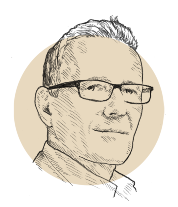It may seem obvious, but being Francophone means speaking French. However, the word is not as old as we might think. It first appeared in 1880 in writings by geographer Onésime Reclus (1837- 1916), the younger brother of the renowned Elisée (1830-1905), also a geographer and a staunch anarchist.
Before that, no one had thought much about it. French was spoken in France and in a few areas in neighboring countries, as well as in the former French territory of Canada and in a handful of far-flung islands. That was it. But things changed with France’s (and Belgium’s) colonial expansion. In a few decades, the French language had spread across the world. However, it was not until 1962 that the word “Francophonie” was listed in the Petit Larousse dictionary, defined as the “collectivity constituted by French-speaking peoples.”
Today, the term Francophone applies to vastly varied sociolinguistic realities. In France, Quebec, Wallonia, and a few Swiss cantons (Geneva, Vaud, Neuchâtel, and Jura), French is the largely dominant, if not exclusive, language. It is also the official language in twenty sub-Saharan African countries (sometimes shared with another language), although it is often only spoken by a small subsection of the population. In other cases, it has no official status but has a large number of speakers, such as in the Maghreb.
All in all, there are some 300 million Francophones globally, which, according to some estimates, places French as the world’s fifth most spoken language – after Mandarin, English, Hindi, and Spanish, and just ahead of Arabic and Bengali.
However, a distinction has to be made between “true Francophones” (235 million), who regularly use French as their first or second language, and “occasional Francophones” (65 million), who seldom use it and have a limited ability. It should be noted that the majority of all speakers live in Africa. Given the huge demographic boom on this continent, the proportion will reach around 75% in 2050. According to some predictions, by then there will be between 500 and 750 million Francophones worldwide.
Another sign of French’s growing global status is that, with almost 120 million students, it is the second most taught foreign language after English, and also the fourth most used language on the Internet.
Beyond these sociolinguistic data, Francophonie also has a geopolitical dimension. This developed in 1970 with the creation of the Agence de Coopération Culturelle et Technique, which became the Organisation Internationale de la Francophonie (OIF) in 2005. According to its founding fathers, including Léopold Sédar Senghor (1906-2001), the first president of Senegal who became a member of the Académie Française in 1984, Francophonie is not just a linguistic community, but also a worldview in which cultural diversity is key.
Over the years, institutional Francophonie has extended its scope to include economic cooperation while also introducing “openly strategic objectives in terms of defending cultural diversity while promoting democracy and international relations based on a multilateral approach.” (See the excellent Atlas de la francophonie by Ariane Poissonnier, a new edition of which was published in 2021 by Autrement.)
In 2022, the OIF had 88 members including states and governments, comprising 54 full members, 7 associate members, and 27 observers, including Louisiana since 2018. With the notable exception of Algeria, all of France’s (and Belgium’s) former colonies are part of the organization. This is why Francophonie, which is often associated with the survival or prolongation of colonization, sometimes attracts criticism, especially in the literary world. Many bookstores have a Francophone section featuring works by Canadian, Maghrebi, and sub-Saharan authors, and a separate section for French writers.
Along with many other writers from a range of backgrounds, French-Congolese author Alain Mabanckou has lambasted this geographical definition of literature. He sees in it a sort of hierarchization, with mainland French figures on one side and others from far-flung countries in a minor subcategory. According to him, this distinction smacks of colonization and is nothing less than an insult.
A similar dualism does not exist in the Anglosphere because this linguistic space is organized around several centers, including the United States, the United Kingdom, India, Nigeria, and Australia. On an institutional level, the Commonwealth can be compared to the OIF. However, aside from being a structure for linguistic and cultural cooperation, it constitutes a club of countries united around a former imperial power sharing essentially economic objectives.
Article published in the March 2022 issue of France-Amérique. Subscribe to the magazine.












